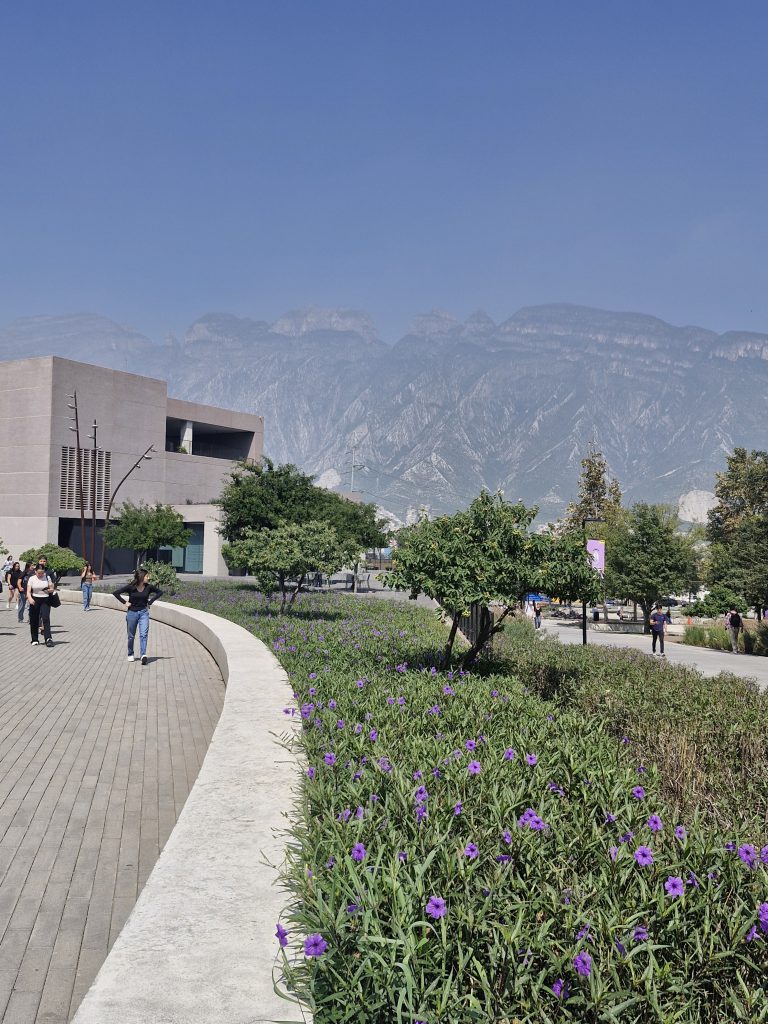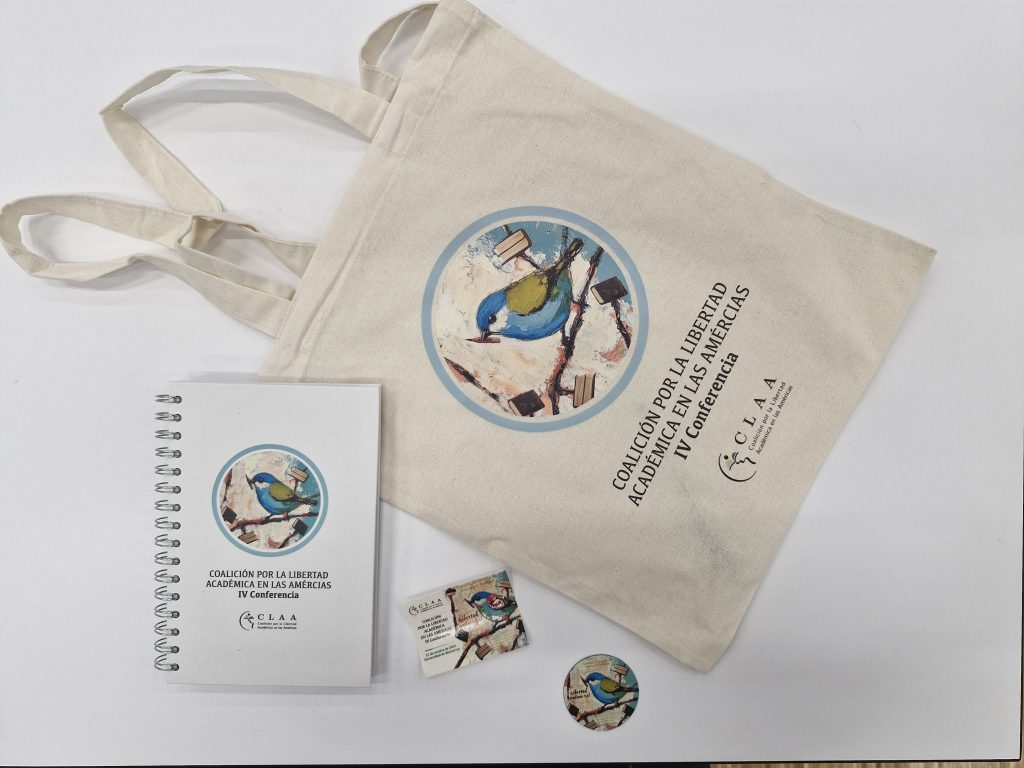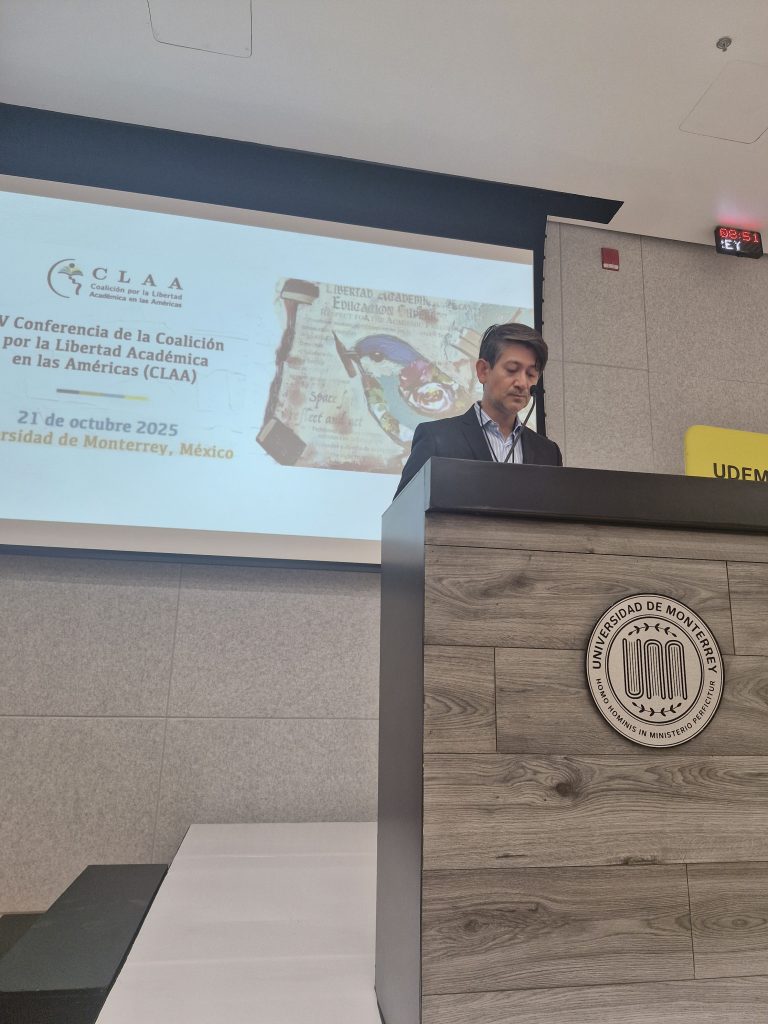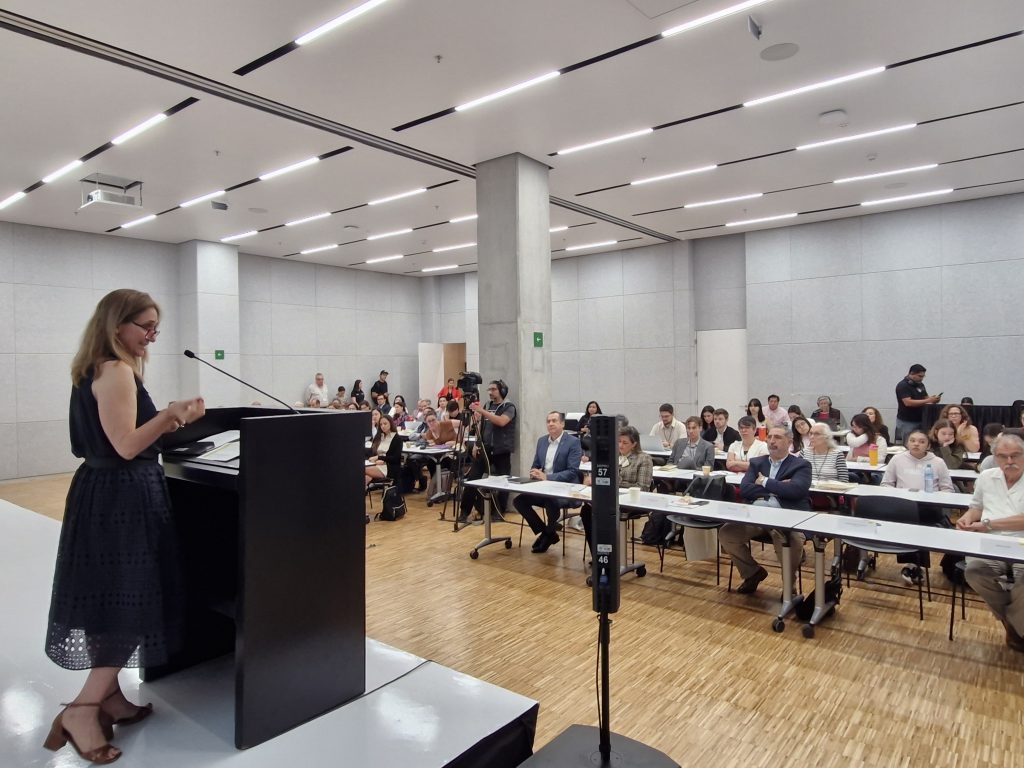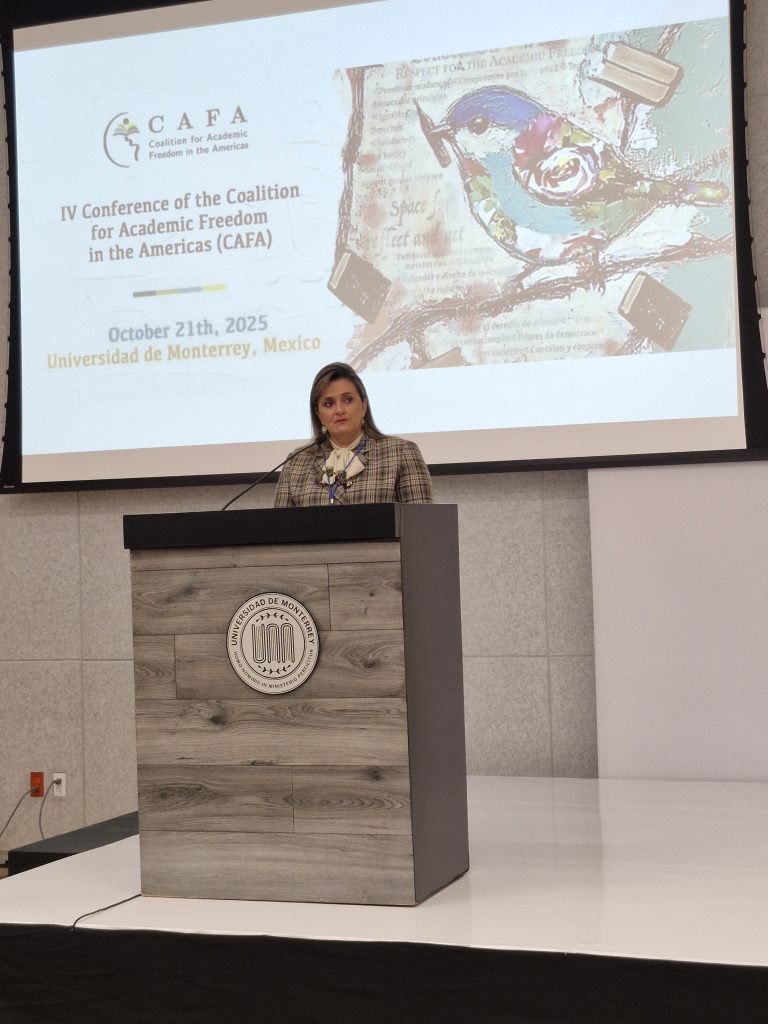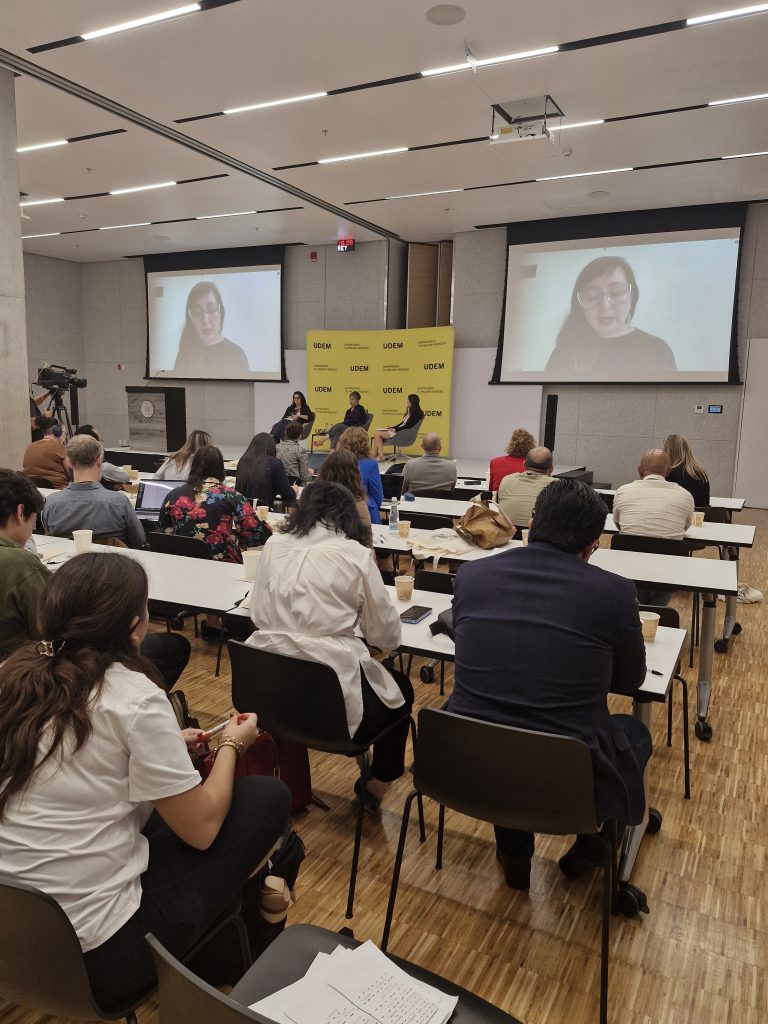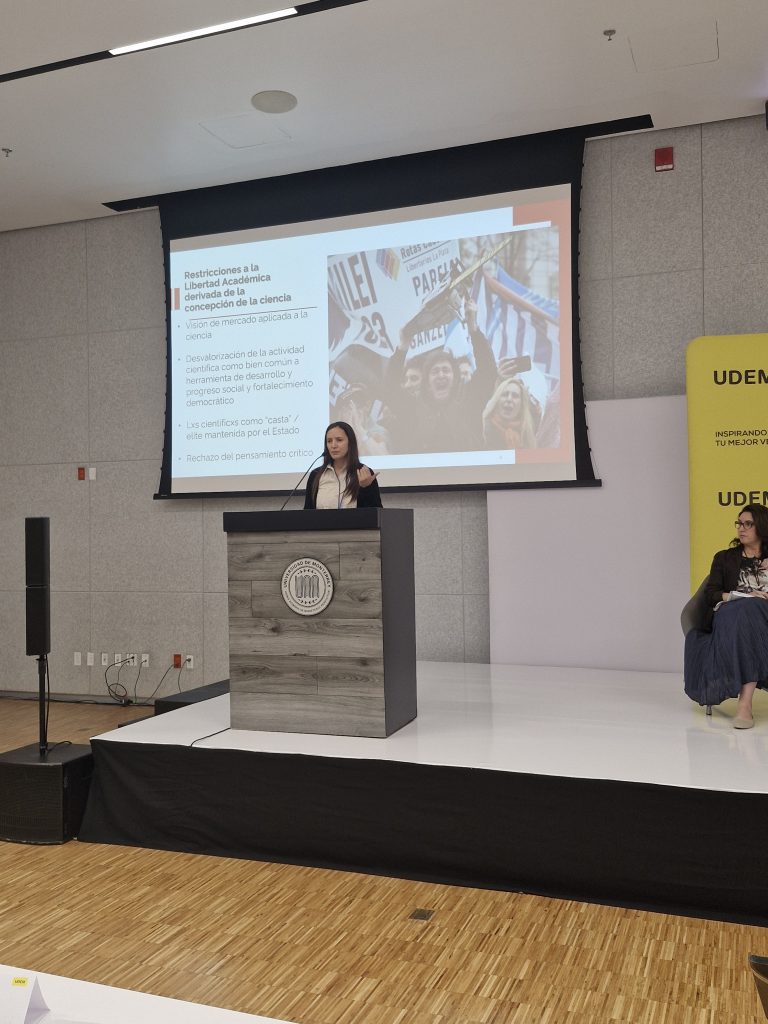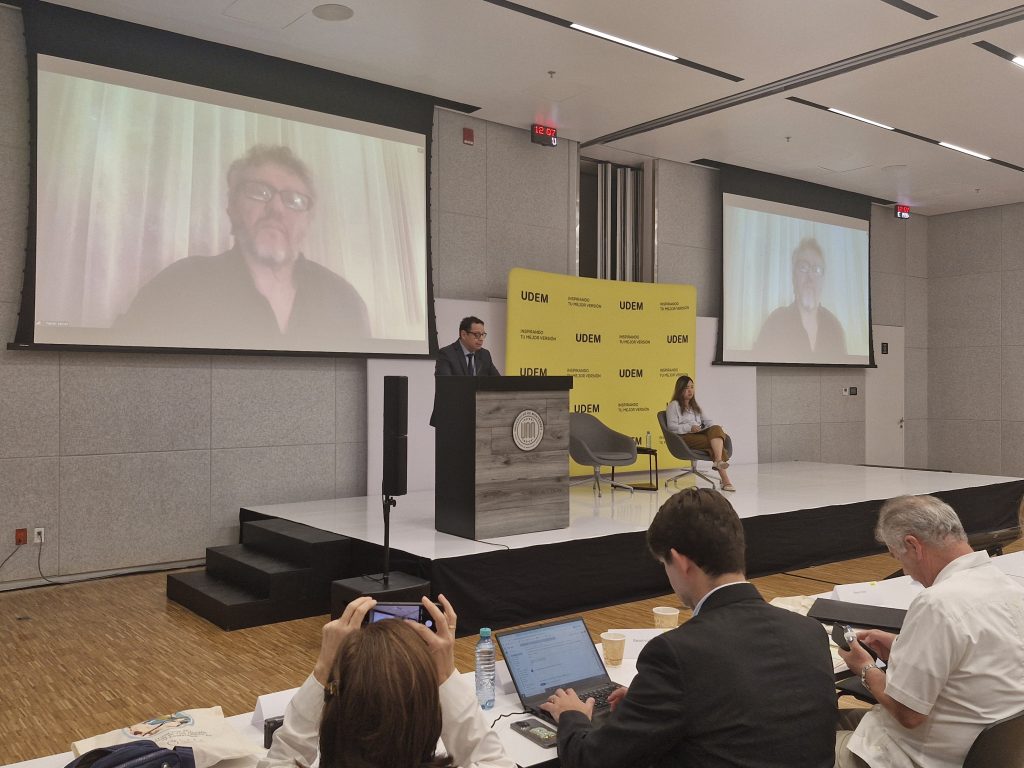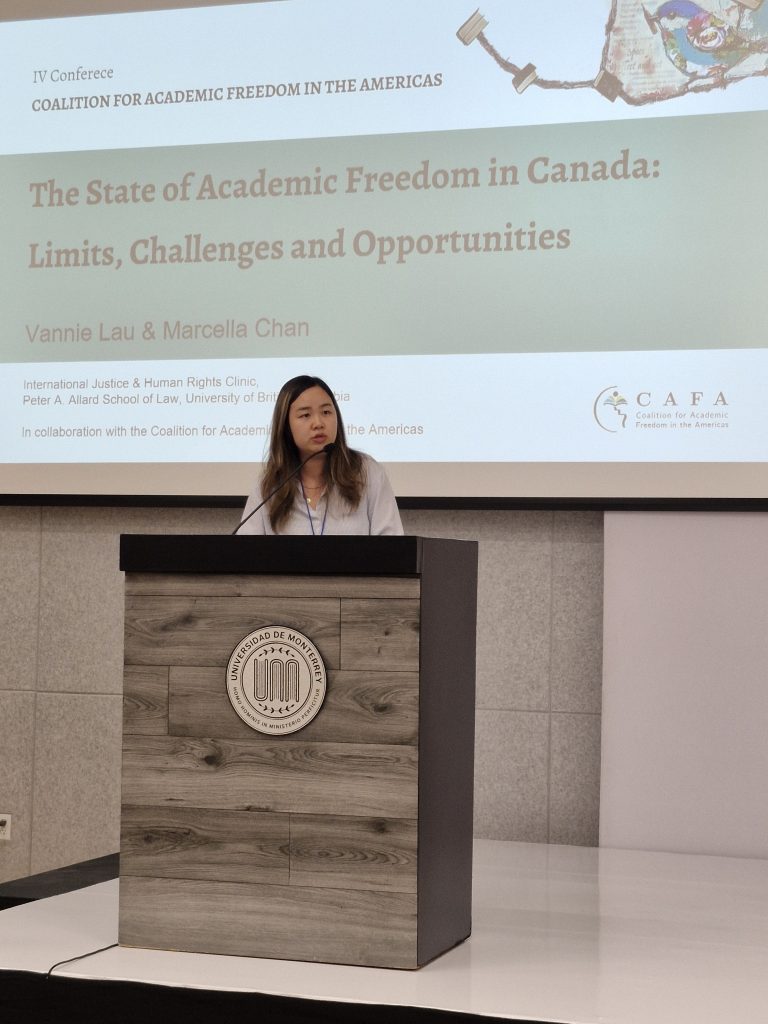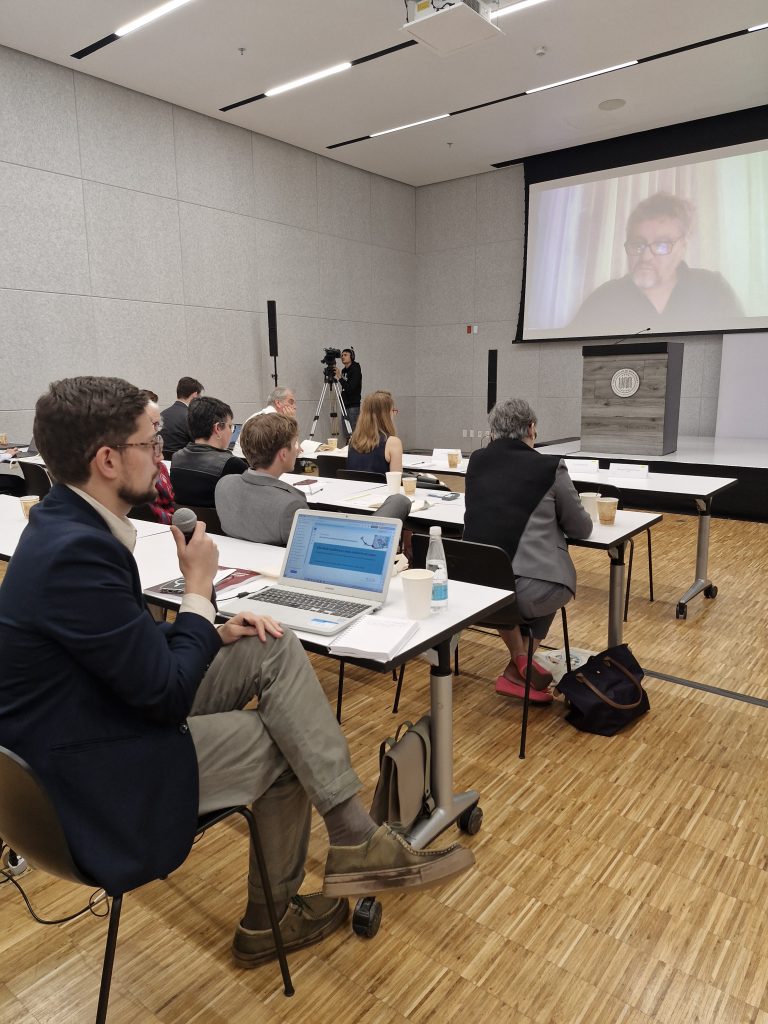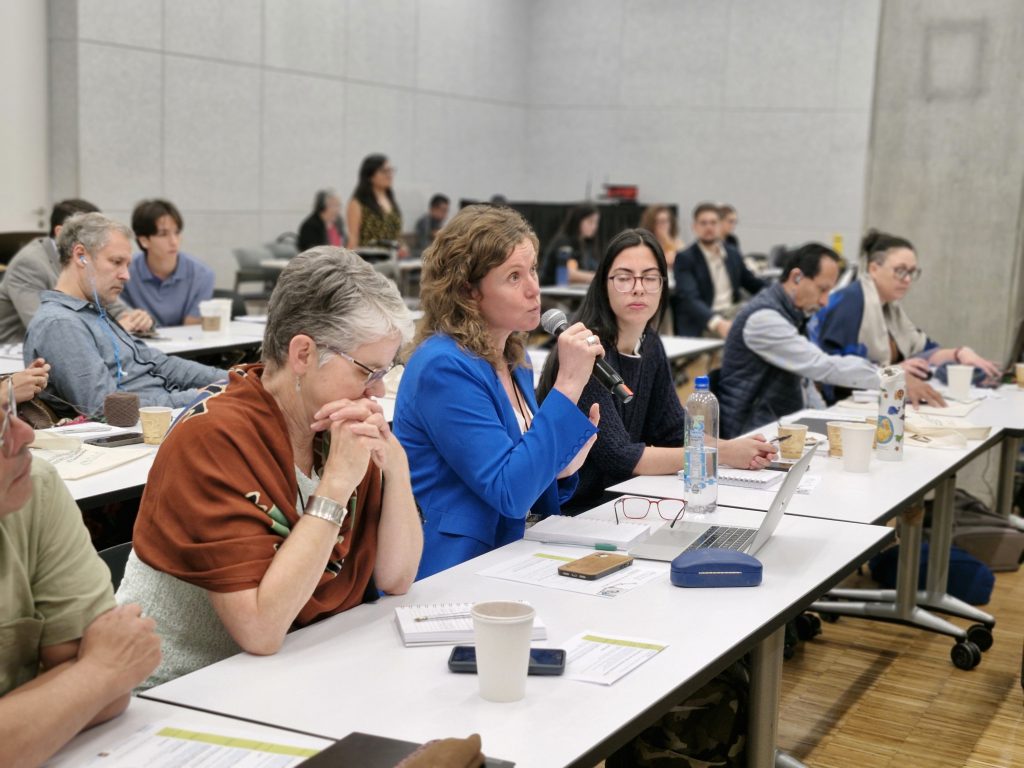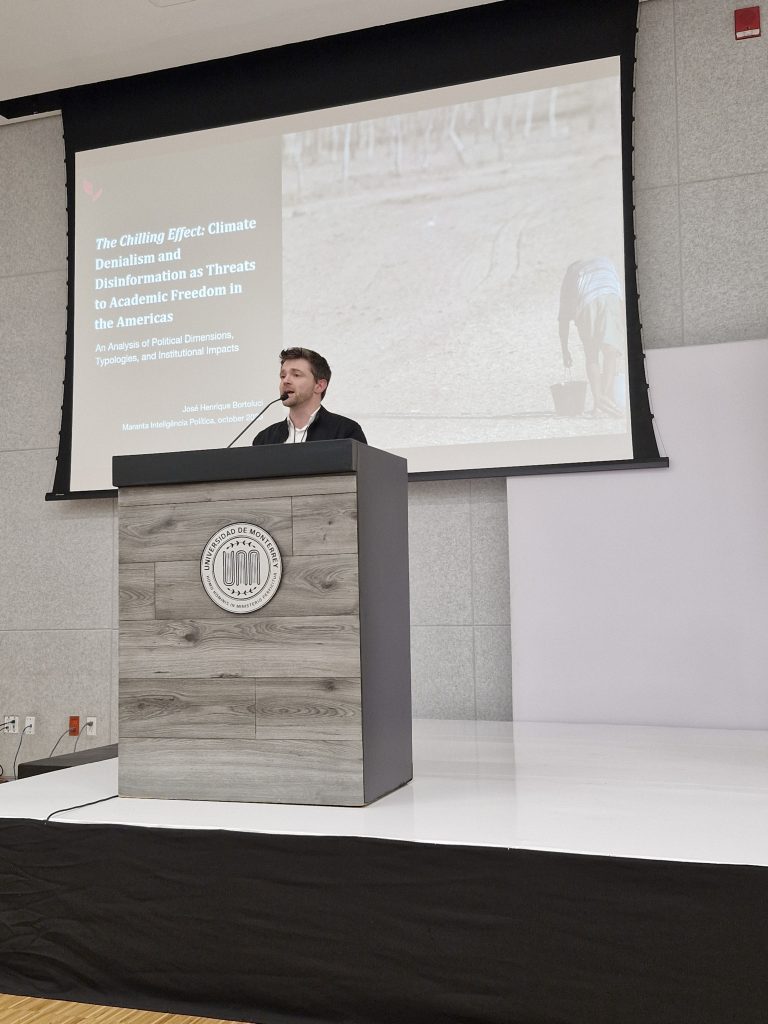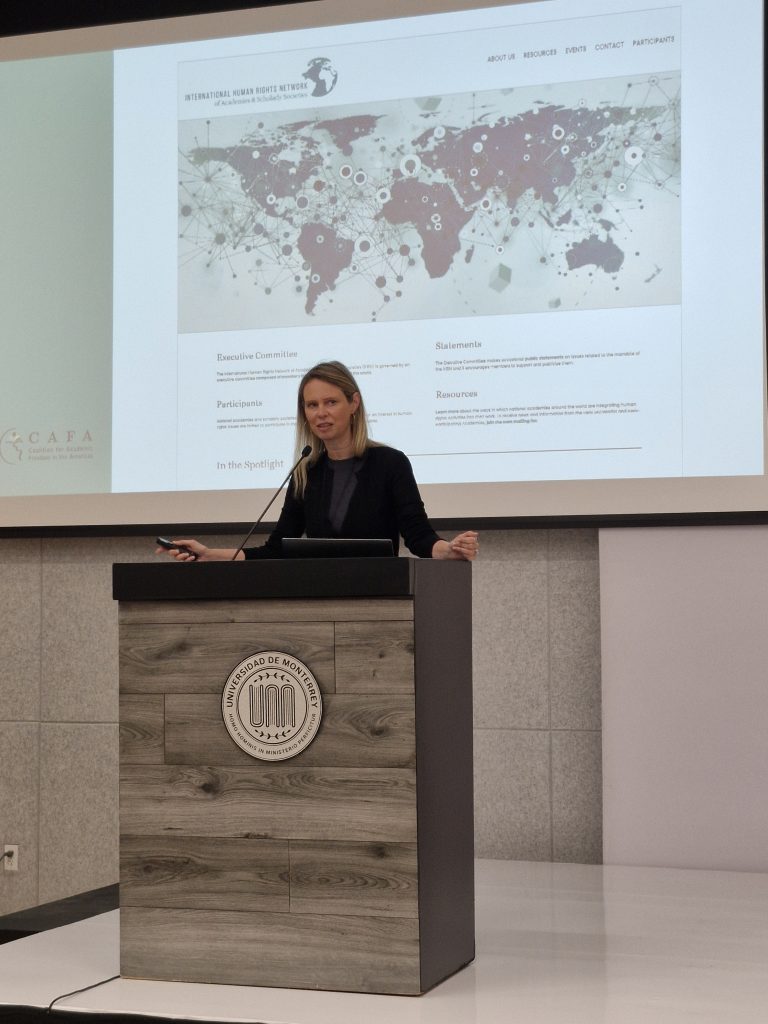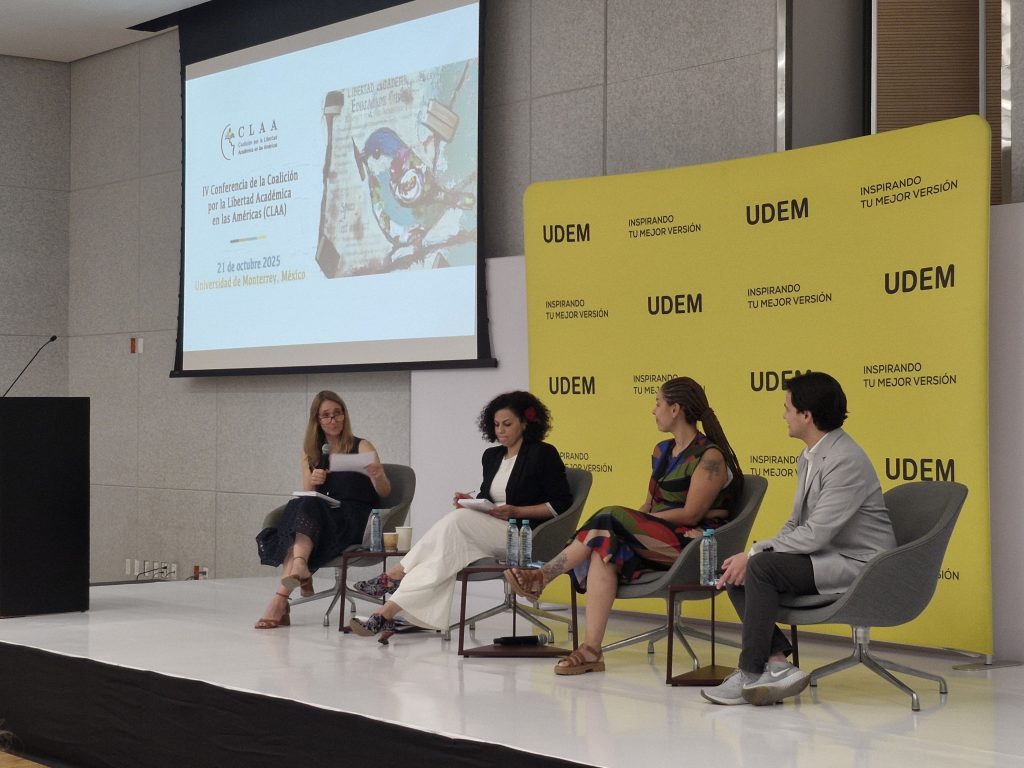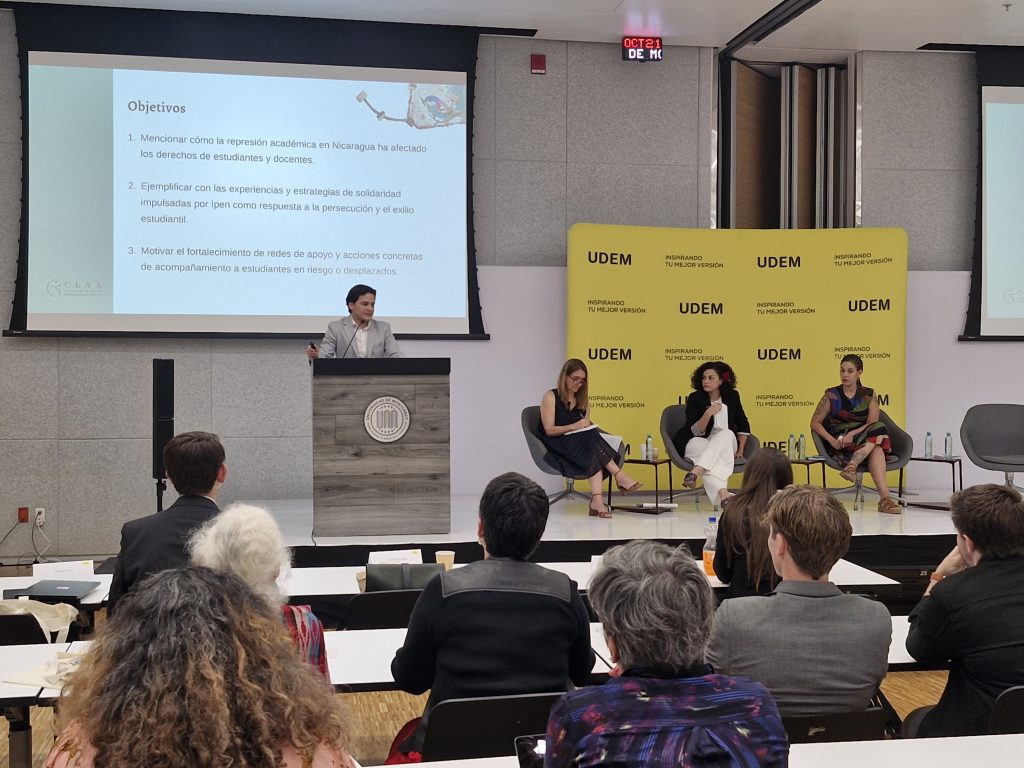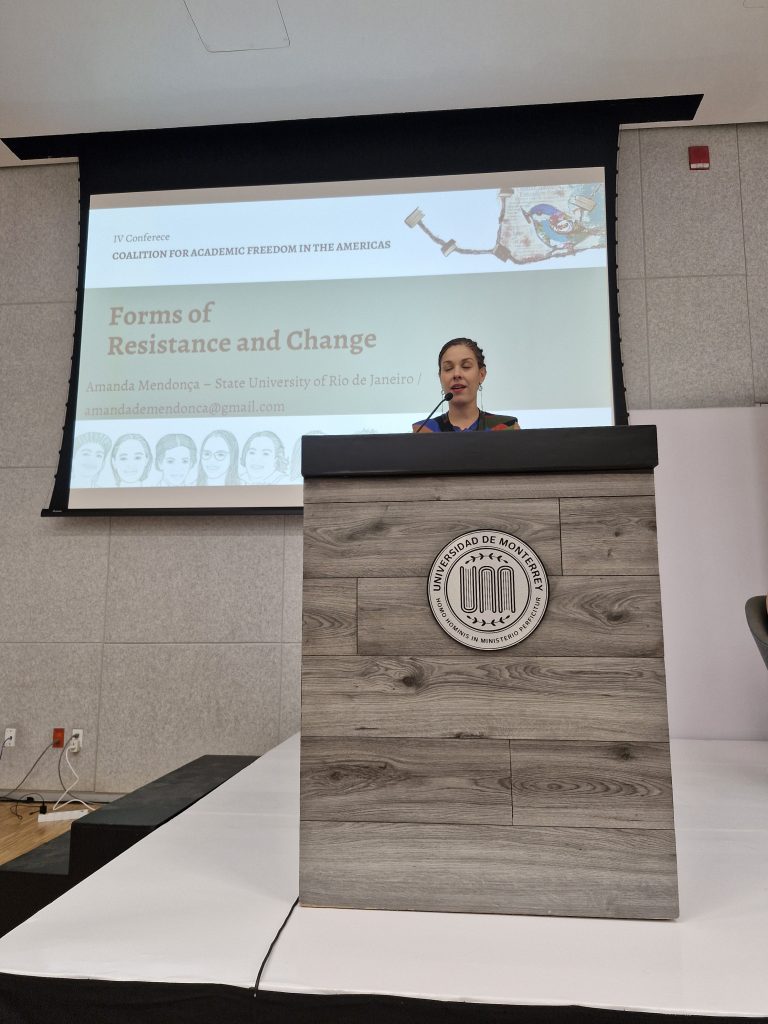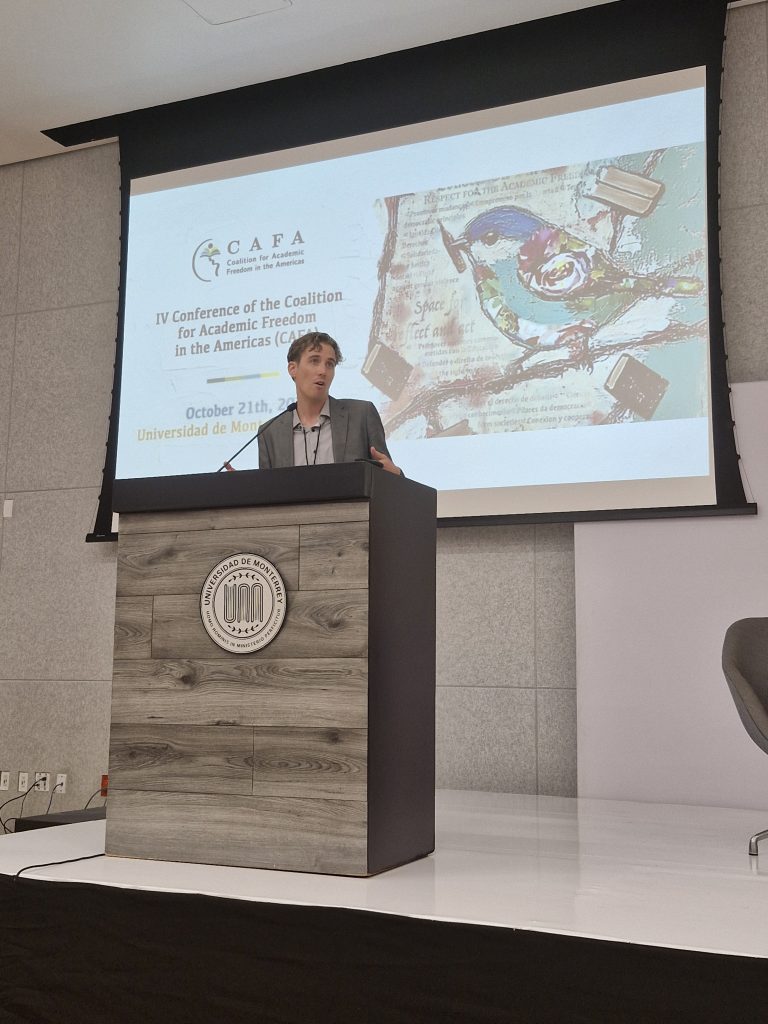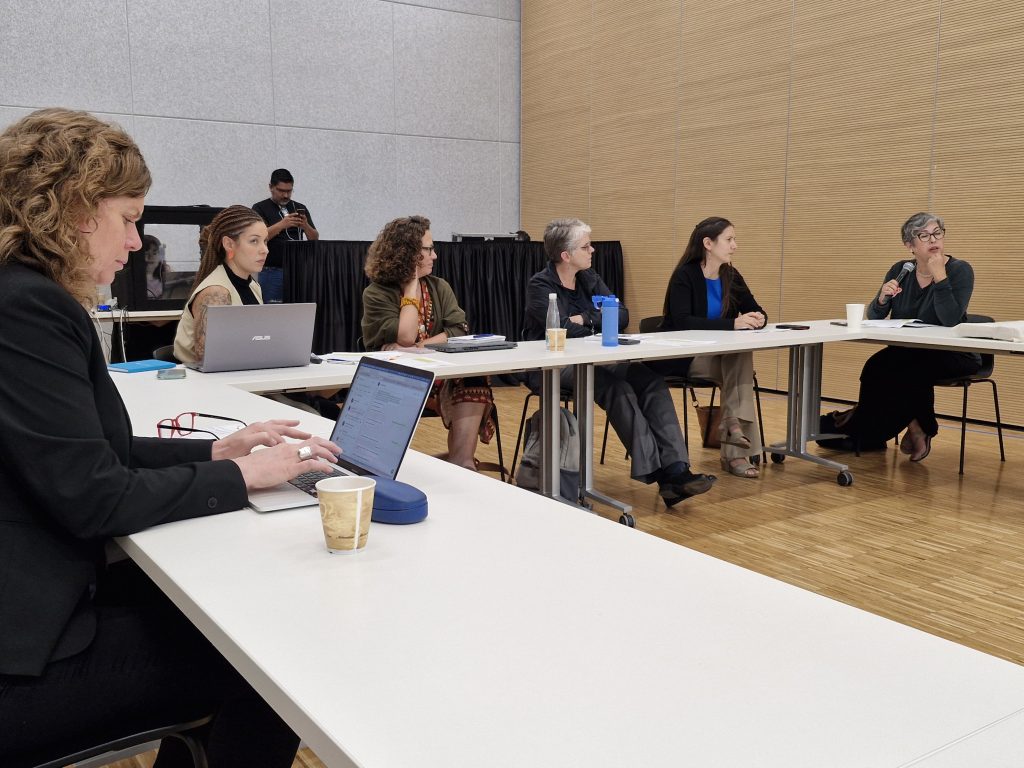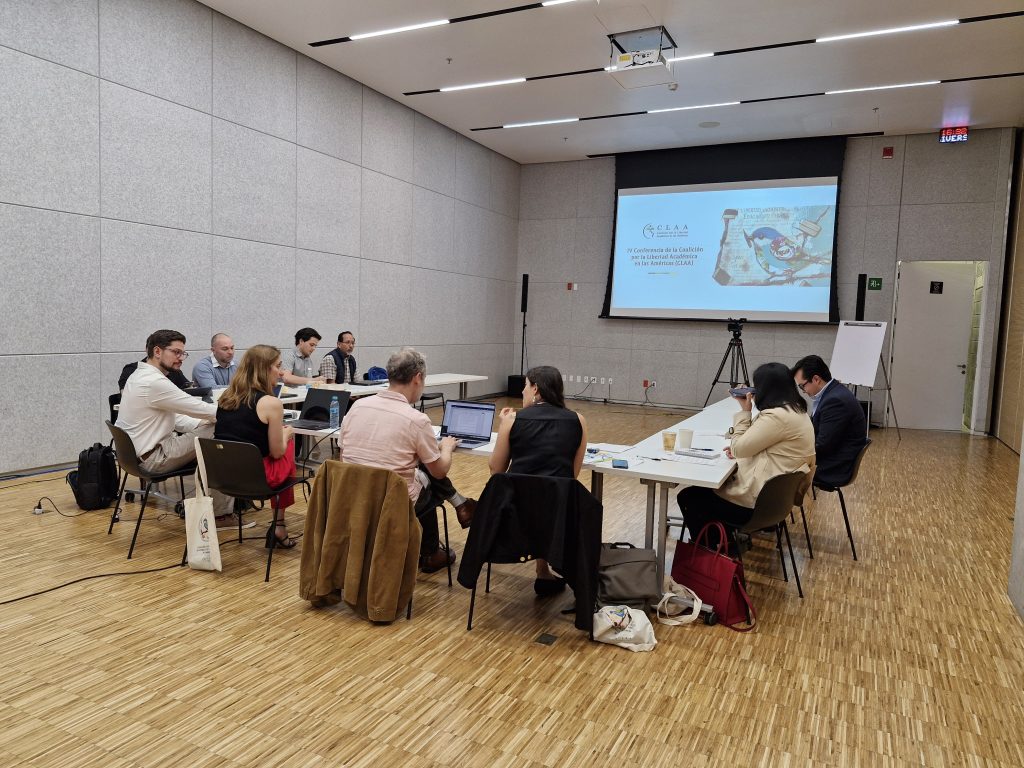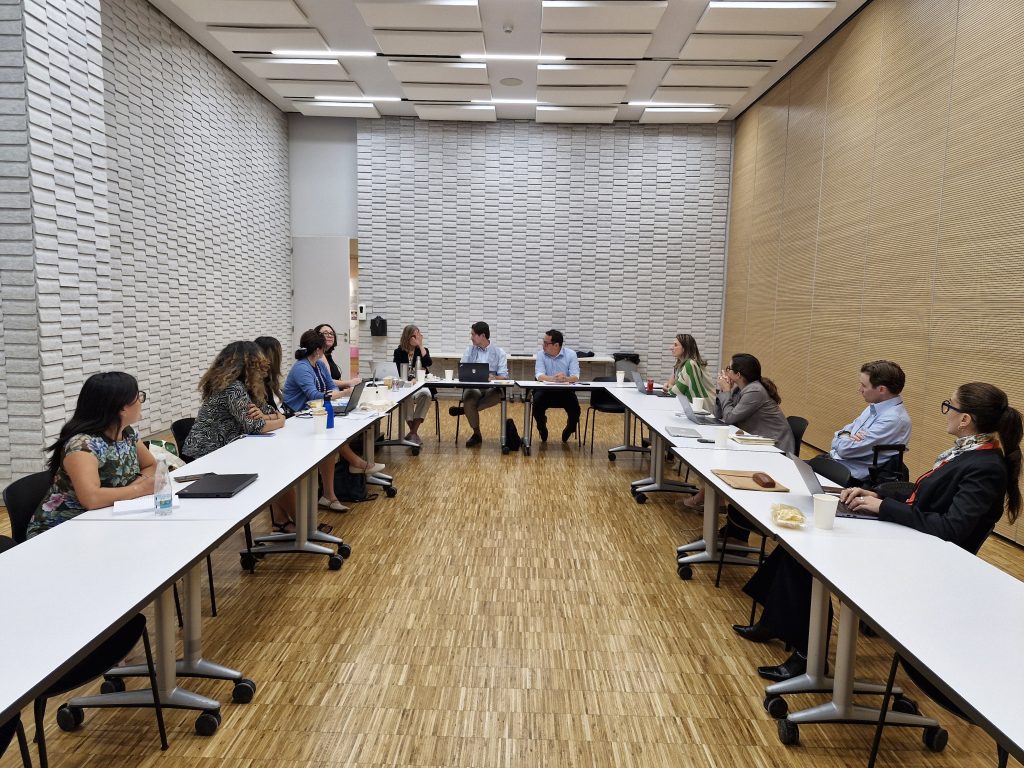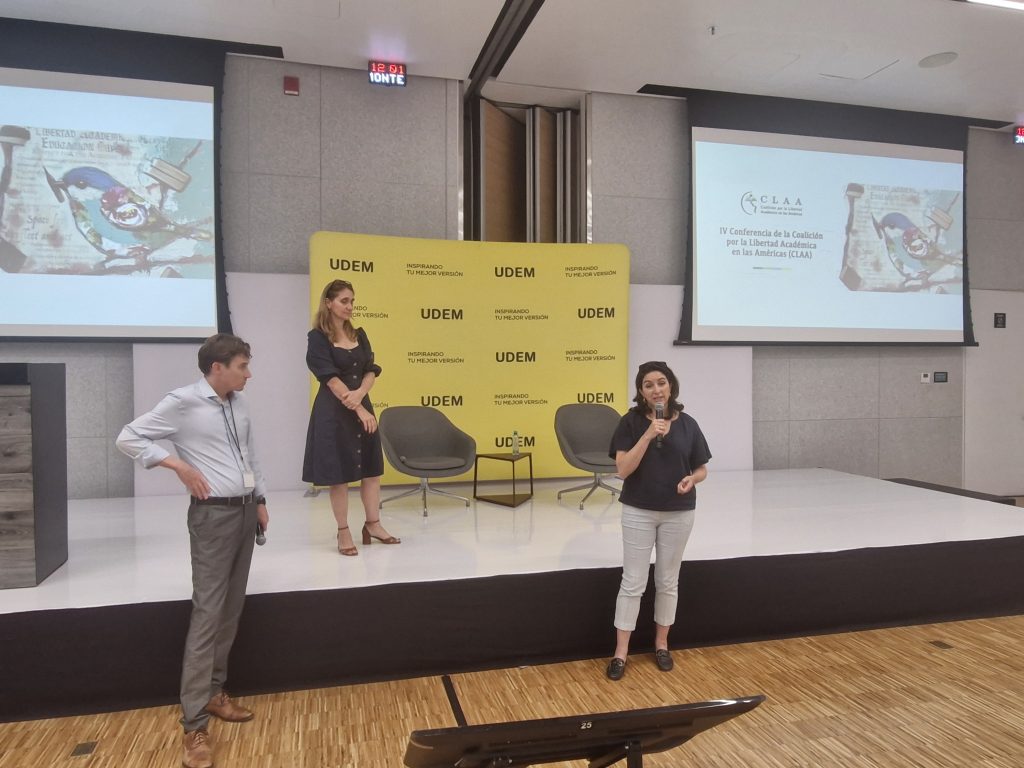From Monterrey, CAFA brings together voices from across the continent to strengthen academic freedom as a fundamental human right
“Academic freedom is the right to think, research, produce knowledge, disseminate, and teach without interference, whether from state, corporate, religious, or other actors.” With this statement, Camilla Croso, executive director of the Coalition for Academic Freedom in the Americas (CAFA), opened the IV CAFA Conference, held on October 21 at the University of Monterrey (UDEM), Mexico.
Before an audience of more than 100 people—including authorities, students, teachers, researchers, activists, and CAFA members—who participated both in person and virtually, Camilla Croso celebrated the strengthening of the movement in recent years: “We have grown as a Coalition. We have 155 members throughout the Americas and more than 350 friends who follow our publications and accompany us in this debate.”
The executive director emphasized that “academic freedom is a fundamental human right and a right that enables all other rights,” recalling that the region is a pioneer in this area thanks to the Inter-American Principles on Academic Freedom and University Autonomy, approved by the Inter-American Commission on Human Rights in 2021.
The vice-chancellor of the University of Monterrey (UDEM), Carlos Eduardo Basurto Meza, participated in the inauguration, highlighting the importance of academic freedom as the basis for university work and social development. The vice-chancellor stressed that universities not only train professionals, but also human beings whose decisions impact the environment, and that the freedom to research, teach, debate, and dissent is essential to keeping knowledge and the search for truth alive. He also recalled that the university must always be a refuge for ideas, guided by values such as dignity, truth, solidarity, and transcendence.
Margarita Ríos Farjat, retired minister of the Supreme Court of Mexico and professor at UDEM, gave the opening speech. In her speech, she reflected on the meaning, challenges, and responsibility that academic freedom entails in the university context. Margarita Ríos Farjat emphasized that academic freedom not only protects the right to teach, research, and learn without censorship, but also the right of students to aspire to a better life. For her, freedom is a pillar of democracy, and its value depends on the responsible use made of it.
“Academic freedom is a pillar of democracy, but it is not enough to preserve it; it must be used with commitment. Every professor, when designing their course, is designing the future of their students,” she said.
Panels: reflections on strengthening academic freedom
The event featured 21 panelists and moderators who analyzed the growing attacks on academic freedom in the region, including cases of censorship, political interference, and violence against educators and students. The panels addressed both the existing legal and political frameworks on the continent and the challenges posed by recent phenomena such as scientific denialism, gender violence, and social polarization, and presented strategies for defense and collective action to guarantee university autonomy and free thought.
Highlights included:
- Repercussions of attacks on academic freedom: Experts from Ecuador, Argentina, the United States, and Central America shared cases of censorship and violence, including gender-based violence, and discussed strategies to protect academics and students.
Panelists: Cristina Burneo Salazar, Simón Bolívar Andean University, Ecuador; Rosario Figari Layus, University of Bonn, Germany/Argentina; Eve Darian-Smith, University of California, USA and Estela Rivero, Central American Academic Research Alliance (CARA).
Moderator: Viviana Fernandez | Human Rights Research and Education Centre (HRREC), University of Ottawa, Canada.
- Regional legislative overview: The advances and limitations of national constitutions and education laws in the Americas to guarantee academic freedom were discussed in relation to the Inter-American Principles on Academic Freedom and University Autonomy.
Panelists: Fabian Salvioli, National University of La Plata, Argentina and Vannie Lau, University of British Columbia (UBC), Canada.
Moderator: Salvador Herencia Carrasco, Coalition for Academic Freedom in the Americas (CAFA).
- Academic freedom and scientific denialism: The impacts of attempts to weaken and delegitimize science on research, education, and public decision-making were analyzed, highlighting the need to link academic freedom with the right to science.
Panelists: Fernando Romani Sales, University of São Paulo (USP), Brazil; Jose Bortoluci, Maranta Inteligência Política, Brazil and Rebecca Everly, Executive Director of the International Human Rights Network of Academies and Scholarly Societies (IHRN).
Moderator: Carolina Santacruz-Pérez, International Science Council.
- Ways of resistance and change: Initiatives to fight for and defend the right to academic freedom were presented, based on coordinated action by teachers and student movements, actions to confront patriarchy in educational institutions, as well as alliances between institutions, in order to confront threats and promote lasting change.
Panelists: Elthon Rivera, Bridges for Nicaraguan Students Initiative (IPEN); Amanda Mendonça, Rio de Janeiro State University (UERJ), Brazil and Gabriela Bonilla, Education International for Latin America.
Moderator: Camilla Croso, Coalition for Academic Freedom in the Americas (CAFA).
- Dissemination of knowledge and presentation of reports: The conference included the presentation of the report Free to Think by Scholars at Risk and a special edition on academic freedom by the Revista Brasileira de Direito Econômico e Socioambiental.
Panelists: Jack Mayerhofer, Scholars at Risk; Salvador Herencia Carrasco, Coalition for Academic Freedom in the Americas (CAFA); Anna Luisa Walter de Santana, Pontifical Catholic University of Paraná (PUC-PR) and Rafael Ibarra Garza, University of Monterrey (UDEM), Mexico.
From North to South: Academic Freedom as a Fundamental Human Right in the Americas
Given the many challenges addressed during the conference, Camilla Croso highlighted the importance of CAFA’s presence in all regions of the Americas. “CAFA crosses the North-South border, and its strength lies in its ability to forge alliances, establish mechanisms for solidarity and learning, and understand issues that affect the entire continent.”
Addressing the young people present, she emphasized that “academic freedom is also a right of students” and called for collective action: “It is about hope, as Paulo Freire said. We are united in the fight for the implementation of this fundamental human right.”
Towards the strengthening of academic freedom in the Americas
At the end of the IV Conference, Rafael Ibarra Garza, member of the CAFA Executive Council and professor at UDEM, reflected on the importance of ensuring the right to education and academic freedom for all. “The knowledge generated is not enough if it is not adequately disseminated; that is why we must democratize it and make it accessible to all,” he said.
Jack Mayerhofer, member of the CAFA Executive Council from Scholars at Risk, highlighted three key points for strengthening academic freedom in the future: improving communication about its value to the public, rejecting isolationism, and strengthening solidarity. He also stressed the importance of ensuring formal legal protection for academic freedom and institutional autonomy.
“We must better communicate the value of academic freedom to the public, reject isolationism, and strengthen solidarity to advance its protection together.”
From reflection to action: academic freedom as a regional construct
After the conference, CAFA members present in Monterrey organized themselves into working groups for two days, focusing on gender, monitoring cases of attacks on academic freedom, and strategic litigation.
“We worked together in thematic groups, monitoring and legal strategies. Research and action go hand in hand,” said Camilla Croso, reinforcing the Coalition’s collective commitment to defending and promoting academic freedom in the Americas.
Image gallery of the IV CAFA Conference
